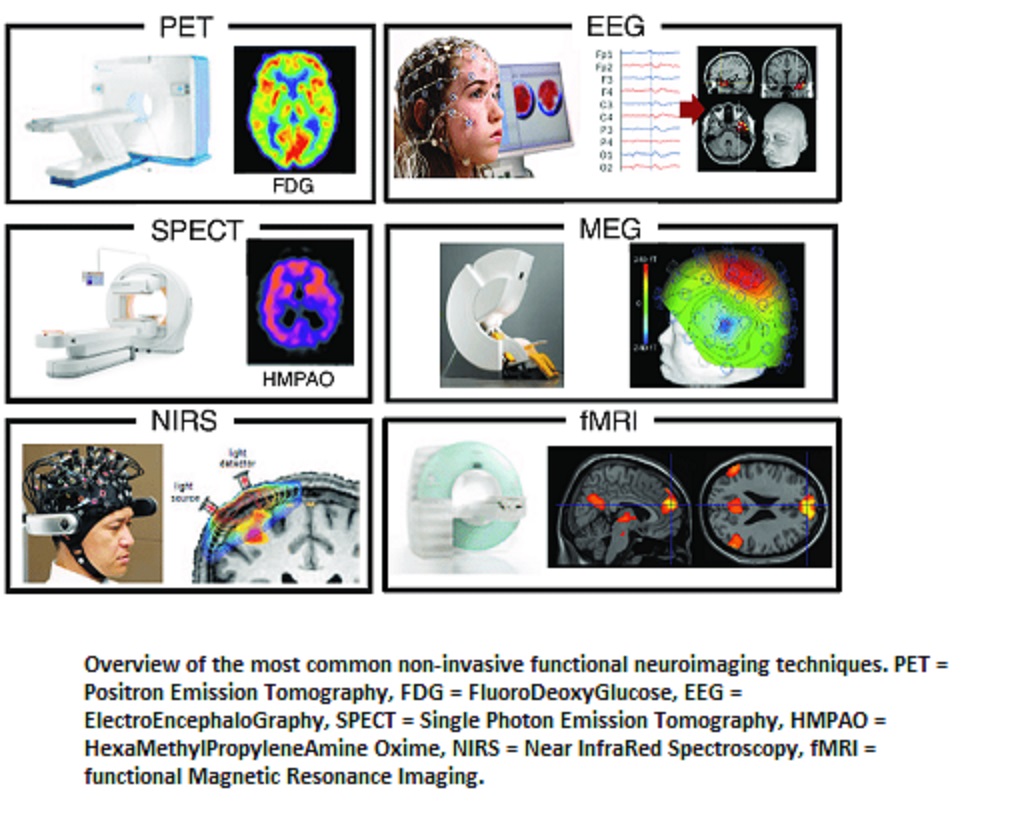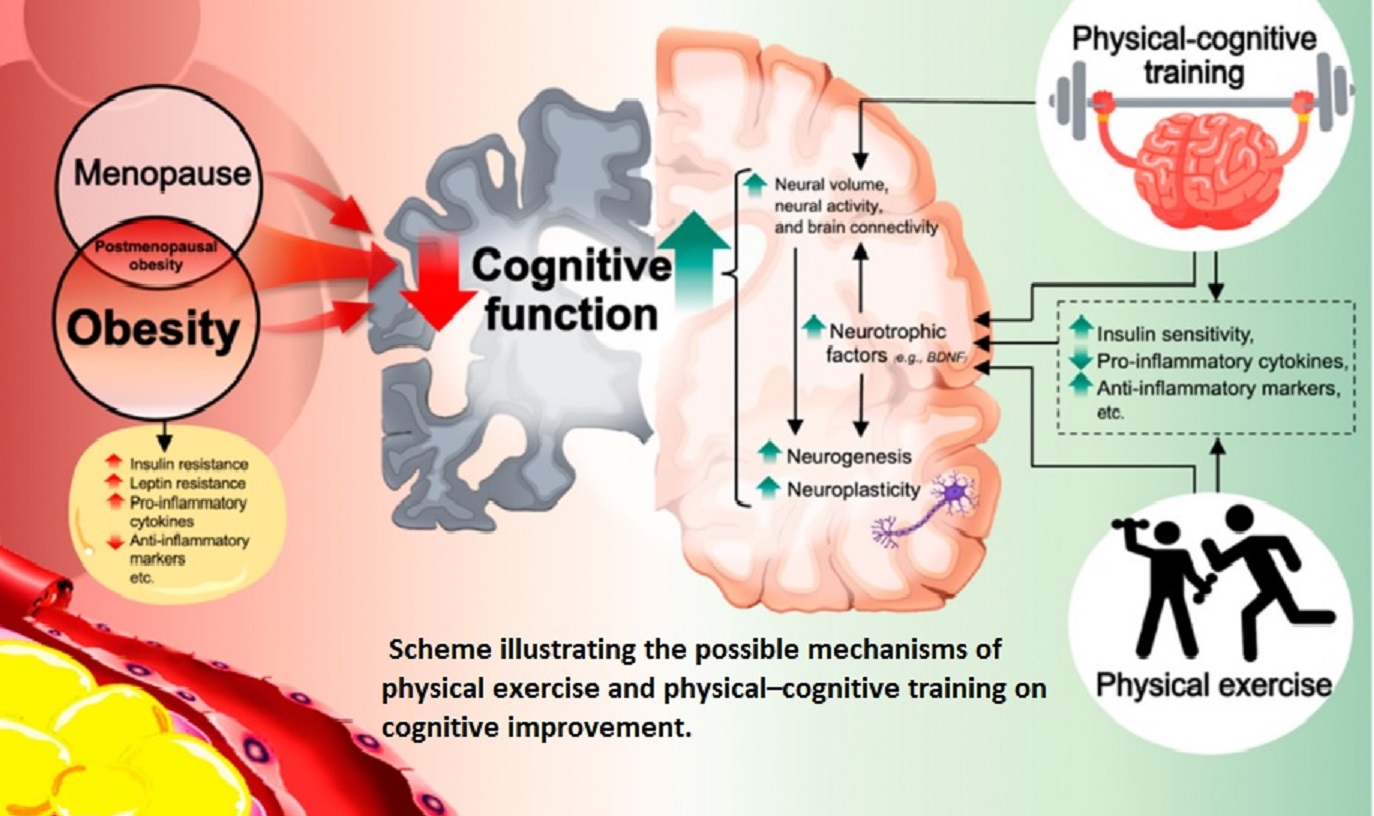Cognition, considered the foundation of human intelligence encompasses mental processes that enables us to learn, understand, remember and use information. It involves a wide range of mental activities from simple sensory perception and memory to intricate problem-solving and decision-making. Did you know that human brain is capable of processing an estimated 70,000 thoughts per day? From simple tasks to complex problem-solving, the brain continuously works behind the scenes orchestrating our thoughts and actions. The human brain is often compared to the most powerful supercomputers due to its vast complexity and processing capabilities. It contains approximately 100 billion neurons which could potentially perform an estimated 1 quadrillion calculations per second.

Our cognitive processes allows us to engage with the outside world, learn from our experiences and adapt our behavior to deal with different situations as they emerge. At its core, cognition involves a series of interconnected mental processes that seamlessly world together to process information. Sensory perception allows useful for to take in stimuli from the environment, while attention directs our focus to relevant inputs filtering out distractions. Once information is registered, it is encoded into memory, forming the foundation for future learning and retrieval.
Also, cognition is not a static concept; a person can undergo changes throughout the lifespan. From infancy to old age, cognitive abilities evolve influenced by genetic factors, environmental experiences and individual differences. As we grow and age, our cognitive functioning may peak, stabilize or decline and understanding these trajectories is essential for promoting healthy aging and addressing cognitive disorders.
Stages of Cognitive Processes
- Perception: Perception is the first stage of cognitive processing involving the reaction and interpretation of sensory information from the environment. It includes the processing of stimuli received through our senses-vision, hearing, touch, taste and smell. The brain transforms these into meaningful patterns, allowing us to recognize objects, interpret facial expressions, and navigate the world effectively. Perception is influenced by factors such as attention, past experiences, and expectations.
- Attention: Attention is the selective focus on specific stimuli or information while ignoring others. We cannot process all the sensory information available simultaneously, so attention helps us prioritize what is important. This stage involves directing our focus, maintaining it, and shifting it as needed to perform tasks effectively.
- Memory: Memory is the process of encoding, storing and retrieving information. It plays a central role in cognition by allowing us to retain knowledge and experiences, learn from past events and build upon prior learning. Memory is commonly categorized into three types: sensory memory (briefly holds sensory information), short-term memory (stores information temporarily for active thinking) and long-term memory (keeps important information stored for a long time). The interplay between these memory systems facilitates learning and decision-making.
- Language Processing: Language processing is a complex cognitive stage that involves understanding and producing spoken or written language. Language processing enables communication, knowledge acquisition, and expression of thoughts and ideas.
- Thinking and Reasoning: The cognitive processes involved in problem-solving, making decisions and coming to conclusions are referred to as thinking and reasoning. This stage relies on our working memory and the manipulation of mental representations to analyze information, weigh alternatives, and arrive at logical conclusions.
- Executive Functions: Executive functions are higher-order cognitive processes responsible for goal-setting, planning, inhibiting impulses and controlling attention. These processes play a critical role in self-regulation, organization and flexible problem-solving.
- Response and Action: The final stage of cognitive processing involves translating thoughts and decisions into actions or behaviors. This stage engages motor planning and execution, enabling us to physically interact with the environment based on our cognitive processes.
Cognitive Development Across the Lifespan:
- Infancy and Early Childhood: The cognitive journey begins at birth, where infants engage in sensory and motor exploration, gradually forming the foundations of cognition. Infants rapidly acquire language skills and develop schemas to understand the world. The brain’s plasticity during these early years allows for remarkable growth, setting the stage for future cognitive development.
- Middle Childhood: In middle childhood (ages 7-11), cognitive development takes a leap forward. Children’s understanding of cause and effect becomes more sophisticated, and they can engage in concrete problem-solving tasks. Educational experiences and social interactions play a critical role during this period, shaping cognitive growth and fostering intellectual curiosity.
- Adolescence: Adolescence is a period of significant cognitive changes (ages 11-18). They can consider multiple perspectives and engage in more complexes problem-solving. During this time, brain development continues, particularly in the prefrontal cortex which governs executive functions. However, the emotional and social aspects of adolescence can also influence cognitive processing.
- Adulthood: Cognitive talents often peak in early adulthood. They utilize their cognitive skills to pursue education, establish careers, and manage complex responsibilities. As adults age, cognitive abilities may show subtle declines, particularly in processing speed and some memory functions. However, other cognitive domains, such as wisdom and accumulated knowledge, may continue to expand.
- Late Adulthood: Late adulthood (ages 65 and above) is associated with further changes in cognitive abilities. While some individuals maintain their cognitive functions well into old age, others may experience cognitive decline. Memory performance, attention, and processing speed may show variations among older adults. The process of cognitive aging is extremely individualized and is influenced by genetics, lifestyle choices and cognitive engagement.
- Cognitive Reserve and Aging: People who have higher cognitive reserve usually have been better thinking abilities and are better at protecting their brain from decline. Factors like education, staying mentally active, and having complex job all contribute to cognitive reserve showing why it’s important to keep our minds engaged throughout life.

The Influence of Environment on Cognitive Journey: Nurturing Minds, Shaping Intellect
- Early Childhood and Brain Plasticity: The quality of care, emotional support, and cognitive stimulation a child receives profoundly shapes their brain architecture. Nurturing and enriched environments that provide positive interactions, cognitive challenges, and exposure to language can foster robust cognitive development. In contrast, neglect or adverse experiences may hinder optimal brain development.
- Educational Environments: Formal education is a significant environmental factor that greatly influences cognitive growth. Schools provide structured learning opportunities, access to knowledge, and cognitive challenges that expand intellectual capabilities. The educational environment can also promote a growth mindset, encouraging students to embrace challenges and view failures as learning opportunities.
- Language and Cognitive Skills: Children exposed to rich and varied language experiences from an early age tend to have stronger language skills, vocabulary, and cognitive processing abilities. Bilingualism, for instance, can enhance executive functions and cognitive flexibility.
- Enriching Stimuli and Cognitive Engagement: Environments that offer diverse and enriching stimuli promote cognitive engagement and intellectual growth. Exposure to art, music, literature, science, and various domains of knowledge enriches and expands cognitive abilities. Engaging in intellectually stimulating activities and exploring new experiences can foster cognitive curiosity and creativity.
- Digital and Technological Influences: Technology has assimilated into the environmental landscape in the era of the internet. The use of technology can provide both opportunities and challenges for cognitive development. On one hand, digital tools and educational apps can offer cognitive training and enriching learning experiences. On the other hand, excessive screen time and distractions may interfere with attention and cognitive focus.
Understanding the Complexities of the Mind-Brain Connection Through Cognitive Neuroscience
- Mapping Cognitive Functions to brain activity: Cognitive neuroscience uses cutting-edge brain imaging methods like positron emission tomography (PET) and functional magnetic resonance imaging (fMRI) to track and map brain activity during diverse cognitive activities. By correlating specific cognitive functions with brain regions researchers can gain insights into which areas of the brain are involved in different mental processes.
- Localization of Cognitive Processes: Through careful observation and analysis, cognitive neuroscience has shed light on the localization of cognitive functions in the brain. For example, language processing is typically associated with areas in the left hemisphere, while spatial processing is linked to right hemisphere. Understanding these localized functions enhances our knowledge of brain organization and how it contributes to human cognition.
- Neural Plasticity and Learning: Cognitive neuroscience as uncovered the brain’s remarkable ability to adapt and rewire itself in response to learning and experiences. Neural plasticity is a phenomenon that is crucial for cognitive growth, brain injury repair and learning new information and abilities.
- Linking Emotion and cognition: Emotionally charged events can significantly impact memory, attention and decision-making and understanding the neural mechanisms involved offers insights into emotional regulation and mental health.
- Mind-Body Connection: Cognitive neuroscience is at the forefront of exploring the intricate mind-body connection. It reveals how mental processes can influence physical states and vice versa leading to a deeper understanding of psychosomatic interactions and the effects of stress on cognitive functioning.
- Implications for Brain-Computer Interfaces and AI: Information from cognitive neuroscience has been used to develop brain-computer interfaces to construct artificial intelligence (AI) systems. Researchers are attempting to comprehend how the brain processes information in order to create more effective and human-like AI technologies.
Our knowledge of human cognition and brain function is constantly being expanded through cognitive neuroscience. Its multidisciplinary approach which incorporates psychology, neurology, computer science and other disciplines permits ground-breaking discoveries with far-reaching effects on a variety of facets of human existence from education and mental health to technology breakthroughs.

Enhancing Cognitive Function: Strategies for Improving Memory and Focus
- Maintain a Healthy Lifestyle: A healthy lifestyle supports optimal cognitive function. Participating in consistent physical exercise enhances blood circulation to the brain and fosters neuroplasticity making it beneficial for brain health. Put an emphasis on eating a balanced diet full of fresh produce, whole grains, lean proteins and omega-3 fatty acids from sources like fish, nuts and seeds.
- Get Sufficient Sleep: Studies have suggested that learning and memory consolidation can occur during sleep. While not as effective as active learning, certain information can be absorbed during sleep, especially during deep sleep stages. Aim for 7-9 hours of quality sleep each night. Establish a consistent sleep routine, create a comfortable sleep environment, and avoid electronic devices before bed to promote better sleep.
- Practice Mindfulness and Meditation: Mindfulness and meditation techniques can improve focus and attention. Regular mindfulness practice, such as focused breathing or mindful observation, can help reduce distractions and enhance cognitive control. Engaging in meditation can also alleviate stress which can have detrimental effects on memory and concentration.
- Use Memory Techniques: Various memory techniques can aid in improving memory retention and recall. These include mnemonic devices (such as acronyms or visual imagery), chunking (grouping information into meaningful units), and creating associations or vivid mental images to connect new information with existing knowledge.
- Stay Organized and Manage Time Effectively: Being organized and managing time efficiently can reduce cognitive load and enhance focus. Use calendars, planners, or digital apps to schedule and prioritize tasks. Break down complex tasks into smaller, manageable steps, and allocate specific time blocks for focused work.
- Minimize Distractions: Create an environment conducive to focused work. Minimize distractions by turning off notifications on electronic devices, finding a quiet space, or using noise-cancelling headphones. Consider using productivity tools that block distracting websites or apps during dedicated work periods.
- Practice Active Listening and Reading: To improve memory and focus during learning or reading, practice active engagement. Take notes, summarize key points, ask questions, and reflect on the material. These active learning techniques enhance understanding, retention, and recall.
- Regular Health Check-ups: Schedule routine visits to your healthcare provider for check-ups to monitor and address conditions that can impact brain health such as hypertension, diabetes or high cholesterol. Maintaining overall physical health supports optimal brain function.
Cognitive Disabilities and Disorders
- Intellectual Disability: Intellectual disability also known as intellectual developmental disorder is characterized by significant limitations in intellectual functioning and adaptive behavior. People with intellectual disabilities frequently struggle with tasks that include learning, thinking critically, solving problems and gaining the necessary skills for daily living.
- Autism Spectrum Disorder (ASD): ASD is a neurodevelopment disorder that affects social communication and interaction as well as restricted and repetitive patterns of behavior, interests or activities. Individuals with ASD may have difficulties with social skills, verbal and nonverbal communication and may exhibit repetitive behaviors or intense interests.
- Attention-Deficit/Hyperactivity Disorder (ADHD): ADHD is a neurodevelopment condition characterized by persistent patterns of impulsivity, hyperactivity and inattention that interfere with daily life and personal development. Individuals with ADHD may experience challenges in maintaining attention, organizing tasks, managing impulsivity and exhibiting hyperactivity.
- Learning Disabilities: Reading, writing, math and thinking are just a few of the academic skills that can be affected by a variety of diseases known as learning impairments. These conditions are not related to intellectual disabilities but can significantly impact a person’s ability to learn and perform well in specific academic areas.
- Dementia: Dementia is a neurological disorder that gets worse over time and is characterized by deficiencies in cognitive function, memory, reasoning and behavior. The most prevalent variety of dementia is Alzheimer’s disease although other varieties include dementia and Lewy body dementia. It affects multiple cognitive domains and can cause significant impairments in daily functioning.
- Aphasia: Aphasia affects a person’s capacity for language understanding and expression and is frequently brought on by brain damage such as stroke or traumatic brain injury. Aphasic individuals may struggle to express themselves verbally, comprehend spoken or written language and have trouble with reading and writing.
- Executive Functioning Disorders: A group of cognitive processes known as executive functioning are in charge of organizing, planning, solving problems, making decisions and controlling oneself. Executive functioning disorders involve difficulties with these cognitive processes resulting in challenges with time management, organization, initiating tasks and impulse control.
- Cognitive Impairment in Mental Health Disorders: Mental health illnesses like schizophrenia, major depressive disorder and bipolar disorder show symptoms of cognitive impairment. Difficulties in cognitive tasks and daily functioning may arise from impairments that affect attention, memory, processing speed and executive functions.
Cognitive Improvement: Unleashing the Power of Exercise and Training
Cognitive improvement, the enhancement of cognitive abilities, is an area of great interest for researchers and individuals seeking to optimize the mental capabilities. Among the various strategies explored to boost cognitive function, exercise and cognitive training show promising avenues.
- Exercise and Brain Health: Regular physical exercise has profound effects on brain health and cognitive function. Engaging in aerobic activities, strength training or even moderate activities like walking can positively impact the brain. Exercise increases blood flow to the brain delivering vital nutrients and oxygen that support neural health and promote the growth of new neurons.

- Neuroplasticity and Learning: The process of neuroplasticity which enables the brain to rearrange and create new connections between neurons is stimulated by exercise. This rewiring ability enables the brain to adapt to new experiences and learning, leading to improved cognitive flexibility and memory retention.
- Brain-Derived Neurotrophic Factor (BDNF): After exercise, the protein Brain-Derived Neurotrophic Factor (BDNF), which is essential for the health of the brain and cognitive function is released. BDNF encourages the growth, survival, and connectivity of neurons thus helping the brain’s ability to process information efficiently.
- Mood Regulation and Cognitive Performance: The release of endorphins and other neurotransmitters have a favorable impact on emotional wellbeing, physical activity and act as a natural mood enhancer. Improved mood can lead to reduced stress and anxiety, enabling individuals to perform better cognitively and enhance focus and attention.
- Dual N-Back Training: Dual N-Back training is a popular cognitive training technique that involves simultaneously remembering visual and auditory stimuli in a sequence. Studies have shown that consistent Dual N-Back training can lead to improvements in working memory and fluid intelligence.
- Mindfulness Meditation: Cognitive function has been connected to mindfulness meditation techniques including mindfulness-based stress reduction (MBSR). These practices promote increased attentional control, stress reduction, and emotional regulation.









